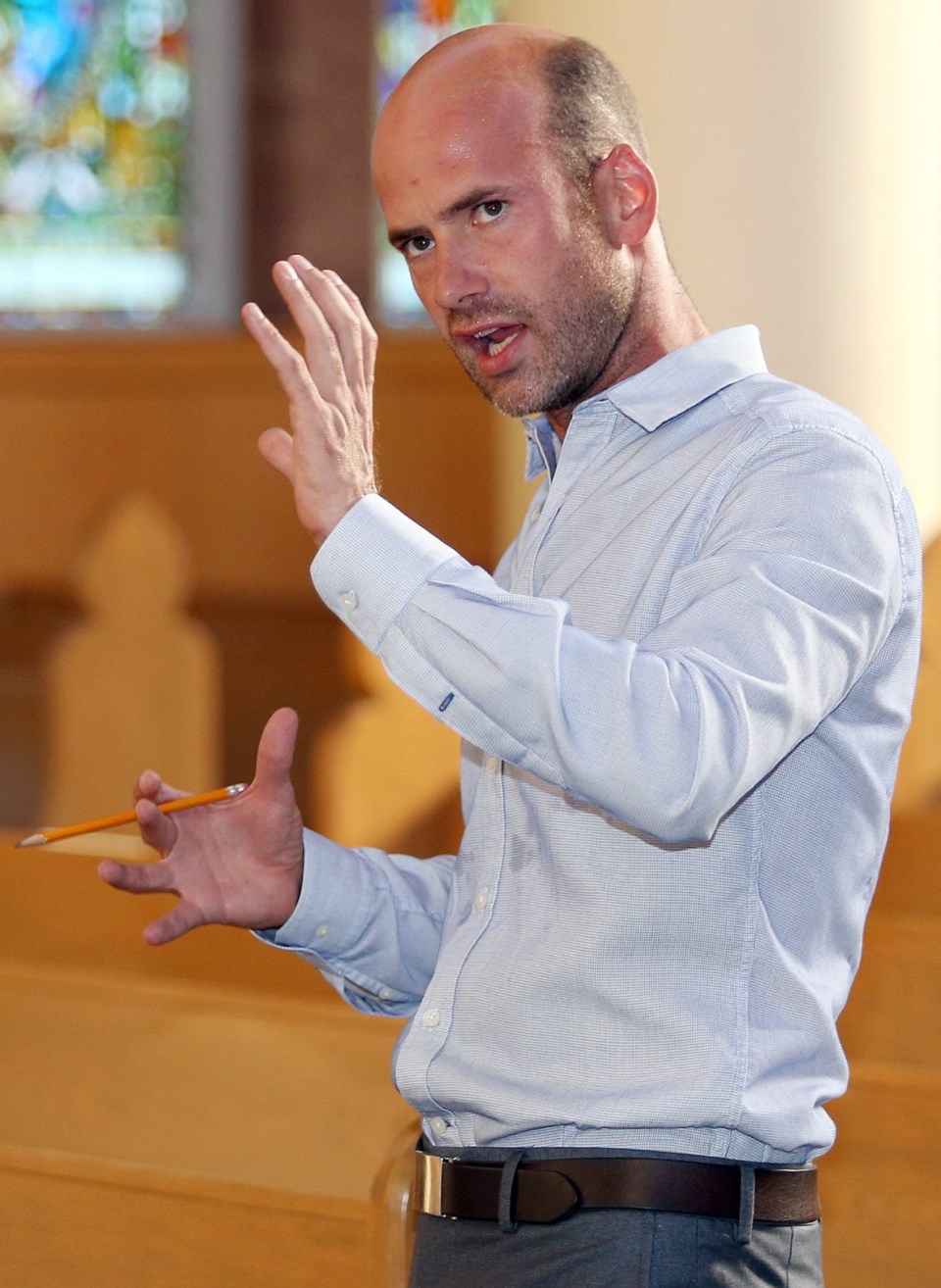Victoria Symphony Splash
When: Sunday, 1 p.m. to 10 p.m.
Where: Inner Harbour
Tickets: Free (donations of $5 or more receive a pin). Additional charges for specialty seating.
To pull off its performance as the first choir on the Symphony Splash floating stage, the members of Vox Humana will have to do something counterintuitive: stop using their ears.
Sound carries differently in open air, said director Brian Wismath, so the 24 choristers will have to trust Wismath’s baton instead. “In a circumstance like this, the tendency can be for musicians to use their ears rather than their eyes,” Wismath said.
“One of the challenges the choir will face, and we’ll rehearse and practise, is being focused on the visual cue from the conductor and ignoring any of the extraneous outside sounds and distractions that could very realistically push them to use their ears.”
More than 40,000 audience members are expected to descend on the Inner Harbour Sunday for Symphony Splash, an outdoor classical music festival now in its 25th year.
This year’s program ranges from celebratory pieces such as Rossini’s William Tell Overture to playful ones such as the Suite From Video Game Live, arranged by Ralph Ford. Nine-year-old Erik Lin, the event’s youngest ever “Young Soloist,” will play Haydn’s Piano Concerto in C. And for his first duty as the Victoria Symphony’s new composer-in-residence, New York’s Jared Miller has arranged The Unknown Warrior in commemoration of the First World War centenary.
But in unveiling the program for Symphony Splash, orchestra music director Tania Miller highlighted Vox Humana’s unprecedented participation as the special event.
Vox Humana is set to open the orchestral portion of the performance at 7:30 p.m., by leading the audience in O Canada. It will also put a twist on Tchaikovsky’s 1812 Overture — singing the opening Russian hymn, which in the past has been played by a cellist. The big event will be Beethoven’s stirring Symphony No. 9, including Ode to Joy.
“I think this is going to be a moment that even the people in the audience may feel very close to and may want to sing along to themselves,” she said.
“It might be an absolute disaster, but I think it will be excellent to try. If it really works, it will be stunning.”
The danger lies not in the choir’s ability, but in the untested ground, she said. Because of limited space on the floating stage, choir members will not be able to see Miller, who will conduct the orchestra.
It will be up to Miller and Wismath to keep an eye on each other and remain in sync as conductors.
Because of the unique conditions of Splash, there will not be an opportunity for a full dress rehearsal or extensive sound check on the barge before the performance.
Wismath said he has been brainstorming any possible problems with Miller and addressing them, whether that means calculating the right microphone levels to balance the vocals with instrumentals or making the choir aware of the way they’ll hear the audience’s voices in O Canada with a delay.
He also plans to throw some curveballs when the choir rehearses with the orchestra in a traditional theatre in the days leading up to the event.
“Most likely, we’ll put the choir in some odd positions, probably move them through the hall,” he said. “And on our own, we’ll probably rehearse outside in different spaces around the city.”
Putting a choir on the floating stage might be a risk. But Wismath believes it’s one that will pay off.
“There’s a bunch of things that could go wrong, but that’s really the case in live music any time, anywhere. This has some more unique factors, but I don’t think Tania and I are afraid of any aspect of this,” Wismath said. “I don’t think there’s anything we can’t conquer in the moment.”



